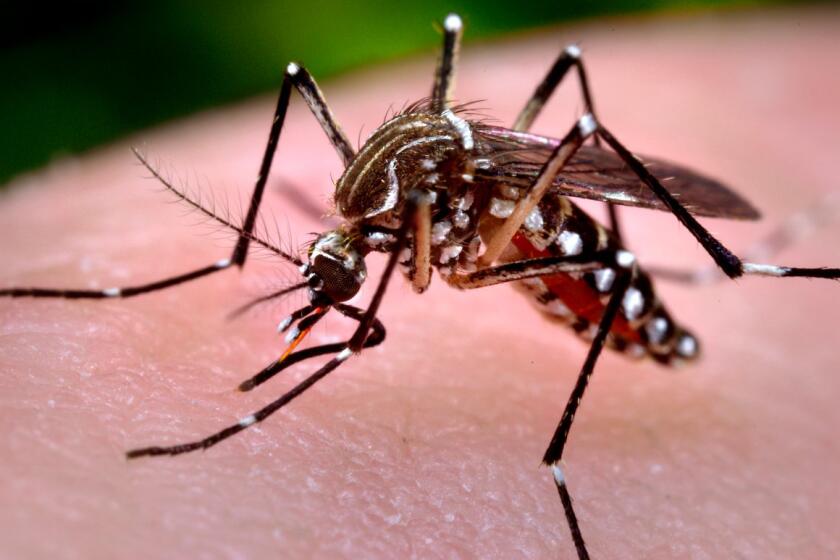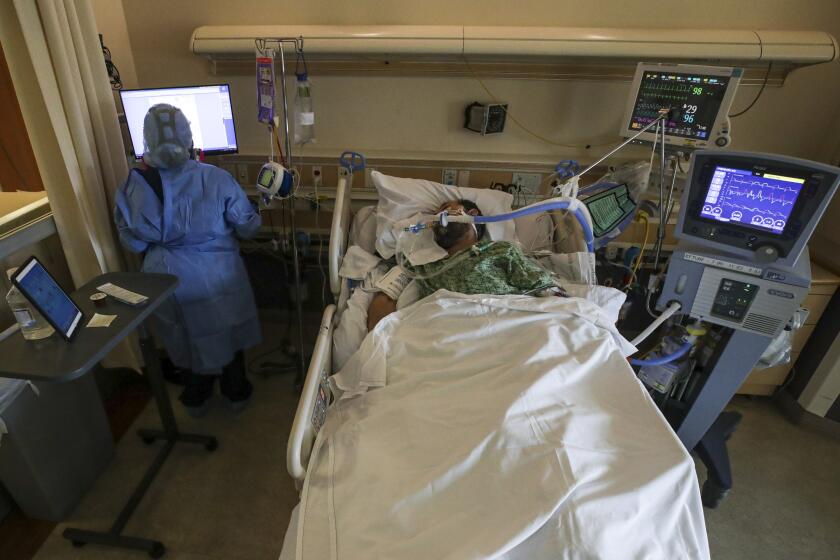Potential treatment for sleeping sickness to be tested
Researchers are gearing up for a clinical trial of what they hope will be the first inexpensive, oral drug to treat trypanosomiasis, commonly known as sleeping sickness.
Current drugs used for the disease require sophisticated diagnosis and drug infusions that are not typically available in the African regions most affected by trypanosomiasis, and the drugs themselves are frequently lethal.
The new experimental drug, called SCYX-7158, is a compound containing the element boron that was developed by a Palo Alto company. It comes in a pill, appears to be safe in animal studies and can be given by rural caregivers.
Trypanosomiasis, caused by the parasite Trypanosoma brucei, is transmitted by the bite of the tsetse fly. It affects at least 30,000 people each year in central Africa and is lethal without treatment. The disease has two stages. The first, or hemolymphatic, stage includes nonspecific symptoms such as headaches and fevers and generally goes undiagnosed. The second, or neurologic, stage produces sleep cycle disruption, paralysis, progressive mental deterioration, coma and, ultimately, death.
The disease is considered endemic in 36 countries of central Africa, but two-thirds of all cases occur in the Democratic Republic of Congo.
Stage 1 can be treated with the drugs pentamidine and suramin, which are fairly well tolerated, but must be injected. Stage 2 is treated mainly with eflornithine, which requires 56 intravenous infusions over 14 days.
“What we need is a very simple drug that we can use at the village level,” said Bernard Pecoul, executive director of the Drugs for Neglected Diseases Initiative, which will sponsor trials of the new drug. SCYX-7158 “is a very, very attractive candidate,” he said.
The drug was developed by Anacor Pharmaceuticals, founded nine years ago to exploit technology for synthesizing boron-containing molecules that was developed at Stanford University and Pennsylvania State University. Boron can take the place of carbon in some organic chemicals, but reacts more readily with infectious organisms. The company has five drugs in clinical trials as antibiotic, anti-fungal and anti-inflammatory drugs, and SCYX-7158 will be the sixth, said David Perry, president and chief executive.
Researchers from Scynexis Inc. of Research Triangle Park, near Durham, N.C., and the Drugs for Neglected Diseases Initiative reported Tuesday in the journal PLoS Neglected Tropical Diseases that the drug kills the parasite in mice, beagles and nonhuman primates and has few side effects.
“They demonstrated that this is a very potent compound against the parasite,” Perry said. “It works at a relatively low level, is orally available, and the margin of safety is about 300-fold” — meaning that it takes a dose 300 times the therapeutic dose to cause harm. The drug is also effective in both stages of the disease.
Pecoul said phase 1 safety trials in humans will begin in the fourth quarter of this year, probably in France. If those are successful, larger phase 2 and phase 3 trials — testing the drug for effectiveness — will begin in Congo in 2013.



